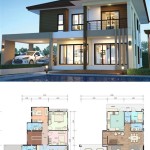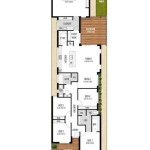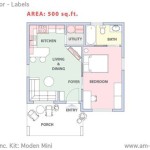House Plans and Costs To Build: Essential Aspects to Consider
Embarking on the journey of building a house is an exciting and pivotal endeavor. However, it is crucial to be well-informed about the essential aspects of house plans and the associated costs to ensure a successful project.
1. House Plan Types
The first step in building a house is choosing the right plan. There are various types of house plans available, each with its advantages and disadvantages.
- Stock Plans: Ready-made plans available online or from architects, which can save on design costs.
- Custom Plans: Tailor-made plans designed specifically for your needs and lot, but may come with higher design fees.
- Kit Homes: Prefabricated homes that are built off-site and assembled on your lot, offering cost savings and faster construction.
2. House Size and Design
The size and design of your house will significantly impact the overall cost. Consider the following factors:
- Number of Bedrooms and Bathrooms: More bedrooms and bathrooms generally increase the cost.
- Square Footage: The larger the house, the higher the construction costs.
- Shape and Complexity: Complex designs, such as curved walls or multiple rooflines, add to the cost.
3. Construction Costs
Construction costs vary depending on the size, location, and complexity of the project. Key factors include:
- Labor: Labor costs vary based on region and the availability of skilled workers.
- Materials: The choice of building materials, such as brick, stone, or wood, can greatly impact the cost.
- Site Preparation: The cost of preparing the building site, including excavation, grading, and utilities.
4. Permitting and Fees
Building a house requires obtaining permits and paying associated fees. These costs can vary depending on the local municipality and include:
- Building Permit: The main permit required for the construction, which involves inspections.
- Zoning Permits: Permits for compliance with local zoning regulations.
- Site Plan Review: Fees for the municipality to review the site plan.
5. Financing Options
Financing the construction of your house is an essential consideration. Explore the following options:
- Construction Loan: A loan specifically designed for financing the construction phase of the project.
- Home Equity Loan: If you have equity in your current home, you can use it as collateral for a loan.
- Private Funding: Seeking investors or family members to provide financial assistance.
6. Timeline and Budget
Establishing a realistic timeline and budget is crucial for successful project management. Consider:
- Construction Timeframe: The length of time it will take to complete the construction, factoring in weather and unforeseen delays.
- Contingency Fund: Setting aside a percentage of the budget for unexpected costs.
- Regular Budget Reviews: Monitoring expenses closely and making adjustments as needed.
Conclusion
Building a house involves meticulous planning and understanding of the essential aspects of house plans and costs. By carefully considering the factors discussed in this article, you can ensure a well-informed decision-making process that leads to a successful and rewarding building experience.

Building On The Affordable House Plans Of 2024 Houseplans Blog Com

Building On The Affordable House Plans Of 2024 Houseplans Blog Com

Est House Plans To Build Simple With Style Blog Eplans Com

Est House Plans To Build Simple With Style Blog Eplans Com

Building On The Affordable House Plans Of 2024 Houseplans Blog Com

Building On The Affordable House Plans Of 2024 Houseplans Blog Com

Est House Plans To Build Simple With Style Blog Eplans Com

What Is The Est Type Of House To Build Blog Floorplans Com

16 Cutest Tiny Home Plans With Cost To Build Craft Mart

Building On The Affordable House Plans Of 2024 Houseplans Blog Com








